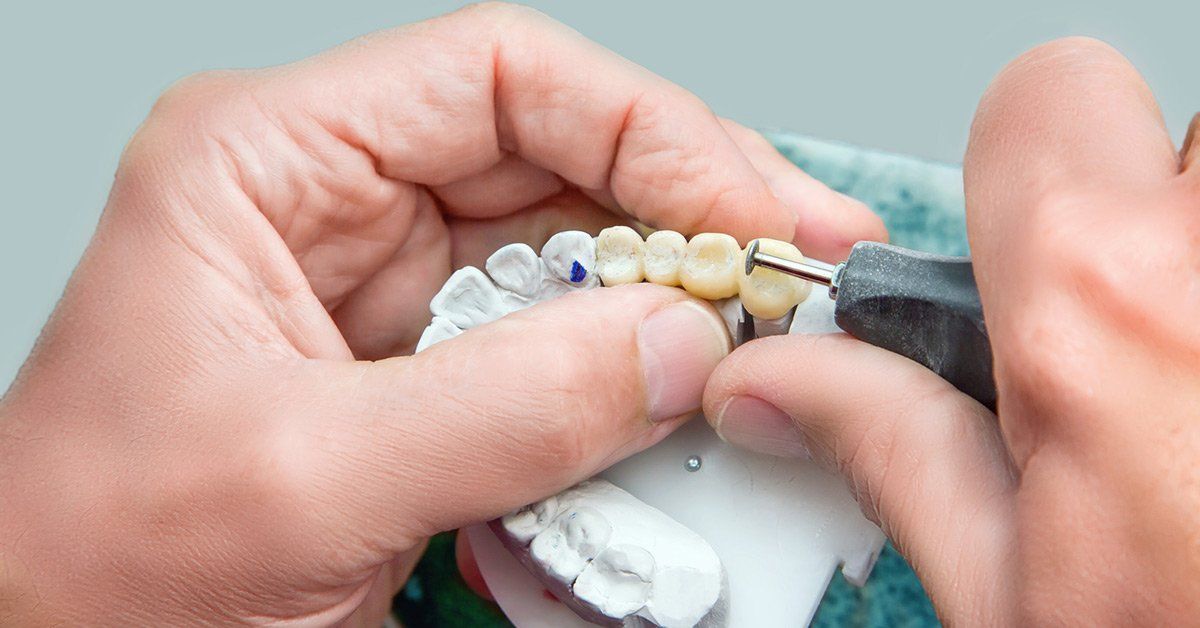How Long Do Dental Implants Last? Dental Implant Longevity and How to Take Care of Your Dental Investment.
More than 3 million people possess dental implants, and the number is growing. How long do teeth implants last? How can you take care of your implants?
Considering some sort of long-term tooth replacement, and your doc or friend suggested dental implants. Certainly an affordable and attractive solution, but how long do teeth implants last?
Well, nowadays, the technology used to create dental implants is quite advanced, making the risk of functional failure entirely non-existent. However, most of the issues will now arise from your dental hygiene and lifestyle.
For example, a pre-existing condition or disease can contribute to the failure of your dental implant.
Nonetheless, let's take a look at the bright-side and determine how long dental implants last on average, what they are made of, and how to care for them.
A Dental Implant Is Made Of?
One of the reasons implants last a long time: is the structure of what they're made of.
The implant, the abutment, and the crown.
The Implant
The implant can be zirconia or titanium screw. And is surgically implemented within your jawbone and serves as the root for the crown of the dental implant.
The Abutment
An abutment is a stabilizer piece for the crow. As it holds the crown and is fastened to the implant.
The Crown
The tooth itself, usually made of ceramic is called the crown. It is mounted on the abutment and serves the function of a real tooth.
In most cases, the crown and abutment are the ones to take any damage. As they are used within activities, such as biting and chewing.
For a more in-depth look at dental implants, check out this article.
How Long Do Teeth Implants Last?
Quite a bit, a decade to say the least.
If you properly maintain and care about your dental implants (see final sections), the implant can last a whole life, assuming that you get regular check-ups with a dentist.
A crown can last anywhere from 10 to 25 years, after which you can look for a replacement, depending on the current quality of it. Sometimes, you don't need a replacement for much longer.
Also, depending on where the dental implant is located, the longevity of it will be variable. For example, teeth in the back are strained more during chewing. Causing them to be under more pressure then they were in the front, which can damage them in special conditions.
Can Dental Implants Fail?
Even with the long-term, lifelong expectation of replacing your teeth with dental implants. There are several factors that can cause the functional or cosmetic failure of a dental implant.
For example, a patient with diabetes or any other pre-existing condition, like cancer - will have a higher risk of a tooth implant dysfunction.
Even though these teeth are artificial, one should still contribute to regular maintenance and care after each tooth, as improper hygiene leaders to periodontal disease. Causing all of your teeth and implants to become unstable, making them easier to fall out during a simple act of eating.
How To Care For Your Dental Implants
Now that you know what dental implants are, how long they last and what causes their failure - you can move on to actually improving their longevity with proper hygiene. So let's take a look.
Soft-Bristle Toothbrush
This is a simple change with a lasting effect. A soft-bristle toothbrush will not damage your gums or cause bleeding. And they are just as effective at removing all plaque and tarter.
For example, you can get an electric soft-bristle toothbrush, which will combine the best of both worlds. Calculated and precise movements with soft and careful cleaning.
Twice Per Day
Hey, most people are encouraged to brush after every single meal, so that would certainly be more than twice per day. But many people don't even brush twice a day, so let's start with that.
Brush in the morning and brush in the evening. By doing so, you remove bacteria of the morning breath and prevent overnight plaque buildup and tooth decay.
Water Flosser
People with dental implants can take great pleasure in using an oral irrigator , a.k.a water flosser. It helps remove bacteria from the pocket depths of your teeth, measuring up to 6mm deep.
Most flossers come with rubber-tip stimulators, which are used to assist people with sensitive gums and clean hard-to-reach areas, regardless of condition.
A water flosser is preferred over a dental floss, as floss sheds particles, which can cause peri-implantitis over time.
Floss first, brush next.
Special Floss
Now you didn't think we would just put down the dental floss like that. It's just regular floss isn't right for dental implants, that's it. Crown and bridge floss is specifically designed to help you scrub around and under your implants.
It comes with 2 nylon ends and fuzzy middle. The stiff ends help you insert the floss between the implants at the gumline. And using the fuzzy part you get to pull through, rub side to side, and so on.
This floss is best used after brushing so that you can help distribute some of the toothpaste in hard to reach areas.
Non-Abrasive Toothpaste
Another good idea is to use a non-abrasive toothpaste, which doesn't have stain-remover agents, baking soda, and other ingredients which remove the glace from ceramic implants.
Look for a toothpaste made specifically for dental implants or ask a specialist.
Additional Tips For Dental Implant Longevity
We've established that dental implants cannot decay, but gums and bone can become inflamed, infected, and decay without proper care. The tips above are certainly a great place to start, but here are some additional ones to help you prolong longevity on your implants.
- Visit the dentist regularly. Make sure to receive regular deep cleaning with your dentist to help your implants function properly.
- Avoid bleach and chlorine cleansers. Using a mouth wash can destroy the color of your implants, not to mention tarnish and corrode the abutment on your implants.
- Avoid hot water for long periods of time. Hot water deteriorates and affects sensitive implants.
- Do not chew on hard things. Try not to chew on pencils, candies, ice cubes, and any other hard object. You don't want to break your crowns.
- If you have teeth grinding, bruxism, then you should get that looked at. Teeth grinding will ruin your implants.
- No smoking. Smoking inflames and weakens the sums, staining crowns, and dentures. You should stop smoking to help retain the beautiful shine and quality of implants.
Dental Implants Done Right
In this article, we've covered what dental implants are, how long they last, what makes them fail, how to take care of them, and other miscellaneous information.
And now that you know the answer to the question of "How long do teeth implants last?" - you are well on your way to deciding if they are right for you.
Follow the hygiene principles outline within this article, and you can make sure to have dental implants that will last many, many years to come.
If you're interested in getting your own quality dental implants in NYC, get in touch with us at SOHO Dental Group now.


